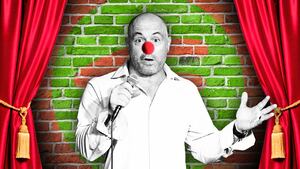Whatever becomes of Tesla chief executive Elon Musk’s tentative moves to buy Twitter, the drama surrounding his bid tells us something about the issues facing the social media giant—and maybe about many journalists’ dysfunctional relationship with it.
For one thing, conservative complaints of Twitter censorship are typically met with the progressive response that the social media site is not a true “public town square” with equal access, but a private company that can write and enforce its own rules and enforce them as they please, the way one would in one’s living room. True enough, from a legal standpoint. And yet many liberals and progressives’ vocal dismay at Musk’s offer to buy Twitter confirms that they do, in fact, see the company as playing an immensely important public role in determining the scope of mainstream conversation.
Robert Reich, former U.S. secretary of labor and professor of public policy at the University of California at Berkeley, lamented that Musk was seeking to “control one of the most important ways the public now receives news” and “be the wizard behind the curtain” deciding what gets projected onto the world’s computer screens. Max Boot, a one-time conservative pundit now aligned with Democrats as a result of his opposition to Donald Trump, even suggested on Twitter that there was cause to worry about the future of democracy itself if Musk were to acquire the platform.
If Twitter has that kind of importance, then it is less a living room than the proverbial “town square” (as Musk has recently asserted in a TED talk). This doesn’t mean, of course, that Twitter management should be legally bound by First Amendment speech protections. It does mean that people concerned about preserving a truly liberal social and political culture have good reasons to push back if Twitter’s policies curb legitimate speech or put an ideological thumb on the scale.
Do they? I have no doubt that a lot of right-wing complaints of oppression on Twitter are whiny grievance politics. In a recent study led by researchers from the Massachusetts Institute of Technology, for instance, two-thirds of “strong Republican” Twitter users thought it was “anti-conservative” to suspend accounts pushing the QAnon conspiracy theory about global pedophile cabals. The same study found that in the six months after the 2020 election, pro-Trump accounts were roughly five times more likely to get suspended on Twitter than ones supporting Joe Biden—but the tendency of pro-Trump accounts to spread misinformation, rated as such by a politically balanced panel, likely accounted for much of this disparity.
And yet the lack of transparency in Twitter’s enforcement of its rules, including bans and tweet removals—and in the functioning of Twitter algorithms that boost certain stories and hashtags and hide others—readily lends itself to claims of bias.
One can think that the Hunter Biden laptop story is a nothingburger and still believe that Twitter’s decision to block links to the New York Post story about it in the fall of 2020 was driven less by concern about the integrity of information than by worry that it would be weaponized by the right. It is still unclear whether Twitter at one point suppressed content referring to the “lab leak theory” of COVID-19’s origins. (The Daily Beast asked for clarification from Twitter, but has not yet received a response.)
Another contentious area in which bias has been alleged—and not just by conservatives, but by radical feminists—is transgender issues. Users have been banned, suspended and otherwise censored not only for attacking specific transgender women, but for making general statements such as, “All rapists are men. In U.K. law, rape is committed by a person with a penis.” Meanwhile, tweets that appear to call for the violent rape of a mainstream, left-of-center journalist who has been accused of transphobia for writing about the complexities of gender transition for minors are allowed to stay up.
This is less about intentional discrimination than about the instinctive progressive biases of many of the top staff at Twitter. Del Harvey, a Twitter veteran who served as the company’s vice president for trust and safety until last October, has been fairly open about her belief that preventing “harm” to “marginalized” users—women, racial minorities, LBGT people, etc.—should take priority. However noble the intent, this is a prescription for nannyism at best (especially since progressive discourse defines “harm” very broadly) and political bias at worst.
Where does Musk come in? His politics cannot be easily pegged (he has railed against “fascist” COVID-19 lockdowns, but quit Trump’s business councils after the administration withdrew from the Paris climate accord). However, his broad libertarianism and his criticism of Twitter for “de facto bias” has inspired fears that he would turn Twitter into a free-for-all den of neo-Nazis, Holocaust deniers, QAnon fanatics, and anti-vaxxers.
In his TED talk, Musk confirmed that he would err on the side of more speech as long as it’s not legally prohibited. Whether that means Musk’s Twitter would allow all constitutionally protected speech (i.e. pretty much everything except for threats and libel) is unclear. However, a couple of his suggestions—making the algorithm Twitter uses to boost and deboost content transparent, and relying on “time-outs” more than permanent bans—seem constructive.
Some concerns have to do with Musk’s personal volatility, such as the 2018 incident in which he got into a spat with a British cave explorer working on the rescue of teens trapped in a cave in Thailand and called him “pedo guy.” But presumably, Musk as Twitter CEO would still rely on advisers and staff to run it. And if he did run it erratically, sane users would desert it en masse—which many people might say would be the best thing to happen to our democracy.
I wouldn’t go that far. However, I do think one potentially good lesson from the Musk/Twitter saga would be to prompt a rethinking of the extent to which we have made Twitter our “town square”—given that only one in five Americans use it and 10 percent of users provide 80 percent of the content. (Notably, Twitter’s policing of election-fraud and anti-vaxx conspiracy theories has not prevented large segments of the population from embracing them.)
Part of Twitter’s outsize importance is that it’s the playpen of choice for media and for political activists. It can be a useful tool for news gathering and discussion, but it can also create a faux consensus increasingly adrift from the real world. Too many journalists are too married to Twitter.
If the prospect that this marriage could leave them partnered with Musk is a sobering or even frightening thought, perhaps it’s time for some conscious uncoupling.



